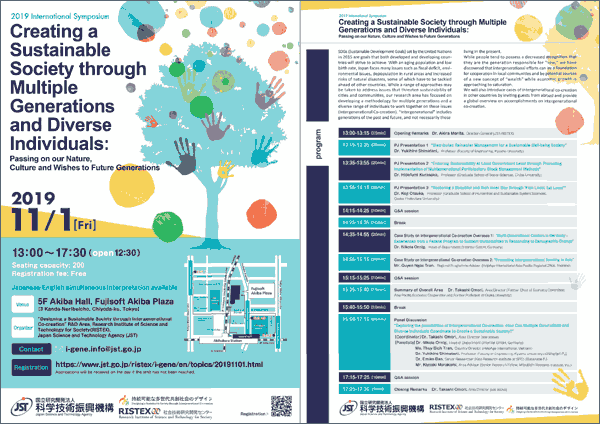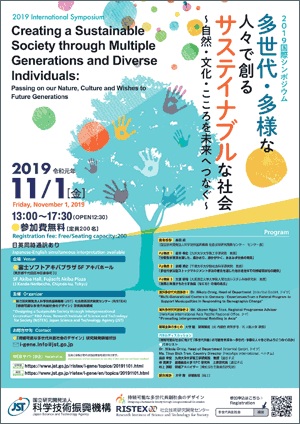Japanese | English
Event & Topics
Creating a Sustainable Society through Multiple Generations and Diverse Individuals:
Passing on our Nature, Culture and Wishes to Future Generations
Date and Venue
Date: Friday, November 1, 2019, 13:00 – 17:30 (Open: 12:30)
Venue: 5F Akiba Hall, Fujisoft Akiba Plaza (3 Kanda-Neribeicho, Chiyoda-ku, Tokyo)
Organizer
R&D Area for “Designing a Sustainable Society through Intergenerational Co-creation”,
Research Institute of Science and Technology for Society (RISTEX), Japan Science and Technology Agency (JST)
Language
Japanese / English
*Japanese-English simultaneous interpretation available
Registration Fee
Free
Theme
SDGs (Sustainable Development Goals) set by the United Nations in 2015 are goals that both developed and developing countries will strive to achieve. With an aging population and low birth rate, Japan faces many issues such as fiscal deficit, environmental issues, depopulation in rural areas and increased risks of natural disasters, some of which have to be tackled ahead of other countries. While a range of approaches may be taken to address issues that threaten sustainability of cities and communities, our research area has focused on developing a methodology for multiple generations and a diverse range of individuals to work together on these issues (Intergenerational Co-creation). “Intergenerational” includes generations of the past and future, and not necessarily those living in the present. While people tend to possess a decreased recognition that they are the generation responsible for “now,” we have discovered that intergenerational efforts can lay a foundation for cooperation in local communities and be potential sources of a new concept of “wealth” while economic growth is approaching saturation.
We will also introduce cases of intergenerational co-creation in other countries by inviting guests from abroad and provide a global overview on accomplishments on intergenerational co-creation.
Program
| Start | End | [Min.] | Description |
|---|---|---|---|
| 13:00 | 13:15 | 15 | ♦ Opening Remarks |
| 13:15 | 13:35 | 20 | ♦ PJ Presentation 1 “Distributed Rainwater Management for a Sustainable Well-being Society” Dr. Yukihiro Shimatani, Professor (Faculty of Engineering, Kyushu University)Presentation File (PDF:15.6MB) |
| 13:35 | 13:55 | 20 | ♦ PJ Presentation 2 “Ensuring Sustainability at Local Government Level through Promoting |
| 13:55 | 14:15 | 20 | ♦ PJ Presentation 3 “Restoring a Beautiful and Rich Inner Bay through ‘Fish Local, Eat Local’” Dr. Koji Otsuka, Professor (Graduate School of Humanities and Sustainable System Sciences, Osaka Prefecture University) Presentation File (PDF:9.7MB) |
| 14:15 | 14:25 | 10 | Q&A session |
| 14:25 | 14:35 | 10 | Break |
| 14:35 | 14:55 | 20 | ♦ Case Study on Intergenerational Co-creation Overseas 1: Presentation File (PDF:2.3MB) |
| 14:55 | 15:15 | 20 | ♦ Case Study on Intergenerational Co-creation Overseas 2: |
| 15:15 | 15:25 | 10 | Q&A session |
| 15:25 | 15:40 | 15 | ♦ Summary of Research Area Dr. Takashi Omori, Area Director (Former Chair of Economic Committee, Asia-Pacific Economic Cooperation and Former Professor of Osaka University) Presentation File (PDF:223KB) |
| 15:40 | 15:50 | 10 | Break |
| 15:50 | 17:15 | 85 | ♦ Panel Discussion |
| 17:15 | 17:25 | 10 | Q&A session |
| 17:25 | 17:30 | 5 | ♦ Closing Remarks Dr. Takashi Omori, Area Director ( see above ) |
*The program is subject to change.
Presenters & Panelists
Takashi Omori
Area Director (Former Chair of Economic Committee, Asia-Pacific Economic Cooperation and Former Professor of Osaka University)
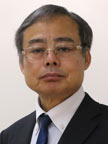
He had long worked for the Japanese Government. He was once engaged in developments of provincial cities. He also wrote an Economic White Paper which focused on Science and Technology. He was also a member of a study group at National Institute for Environmental Studies. After joining the Cabinet Office, he introduced major improvements in the estimation of GDP, served as the head of delegation to OECD economic meetings, and set up research projects on social capital and happiness in its Research Institute. After leaving the Cabinet Office, he was a chief economist for Japan at a foreign securities firm, before chairing the Economic Committee of APEC and becoming a professor at Tokyo City University. D. Phil in Economics, Oxford.
Nikola Ornig
Head of Department, InterVal GmbH, Germany

Nikola Ornig is leading a department at a research and consulting company in Berlin, specializing in the evaluation and scientific accompaniment of governmental programs. She holds a doctoral degree in Social Sciences from the University of Graz/Austria and focuses her research on demographic change, social participation and integration. The evaluation of the Federal Program on Multigenerational Centers on behalf of the Federal Ministry for Family Affairs, Senior Citizens, Women and Youth is currently her main project.
Thuy Bich Tran
Country Director, HelpAge International, Vietnam
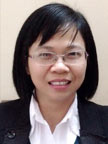
Ms Thuy Bich Tran has 20 years experience working in development and 10 years working in the area of ageing. She is one of the founders of the community based, appropriate, comprehensive and affordable model in Vietnam, so called Intergenerational Self-Help Club (ISHC), which promotes healthy and active ageing in Vietnam. The ISHC has now become the national model which has been, and will be replicated, widely by government and non-government organizations in the coming years.
Quyen Ngoc Tran
Regional Programme Adviser, HelpAge International Asia Pacific Regional Office, Thailand
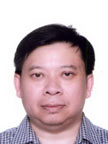
Quyen has more than 30 years experience working in research, emergency response and community development. With respect to ageing, he has been working with HelpAge since 2003. His roles in the region is to provide technical support in areas relating to age friendly livelihood, disaster response and preparedness, healthy and active ageing, care and establishment and capacity building of intergenerational and sustainable community-based organizations in the Asia-Pacific region.
Yukihiro Shimatani
Professor, Faculty of Engineering, Kyushu University
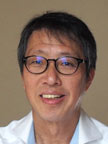
He has worked at the Civil Engineering Research Institute and the Takeo River Office of the Kyushu Regional Development Bureau, Ministry of Land, Infrastructure, Transport and Tourism.
He specializes in river engineering and river environment. He is also familiar with small hydropower and consensus building for public works. Recently, he has been working hard on research on green infrastructure and rainwater society.
Hidefumi Kurasaka
Professor, Graduate School of Social Sciences, Chiba University
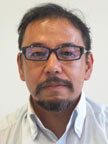
Born in Ueno City (currently Iga City), Mie Prefecture in 1964. Graduated from the University of Tokyo in 1987. Joined the Environment Agency (currently the Ministry of the Environment) in April of the same year. Engaged in drafting the Basic Environmental Law and the Environmental Impact Assessment Law, promoting global warming countermeasures, recycling-oriented social policies, and so on. Moved to Chiba University in April 1998. Majored in environmental policy theory and ecological economics. Started present position from April 2017.
Koji Otsuka
Professor, Graduate School of Humanities and Sustainable System Sciences, Osaka Prefecture University
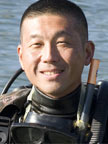
Koji Otsuka was born in Osaka in 1963. After graduation from the Department of Naval Architecture and Ocean Engineering, Osaka Prefecture University, he became a teacher at Graduate School of Engineering, Osaka Prefecture University, and was appointed to his current position in 2016. He has researched on environmental restoration in semi-enclosed sea, such as Osaka Bay, for more than 20 years, and received the Award for distinguished services in environmental protection of Seto Inland Sea in 2013.
Emiko Ban
Senior Researcher, Keio Research Institute at SFC
Part-time Lecturer at Keio University, Faculty of Environment and Information Studies, Graduate School of Media and Governance
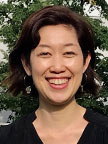
Emiko specializes in the development of human resources for elderly care workers and works on research and development of teaching materials. Since completing her Ph.D. at Keio University Graduate School of Media and Governance in 2008, she has worked in the Director's office of Oume Keiyu Hospital and participated in a research team investigating the effectiveness of a multigenerational community on people's wellness. The latter RISTEX-funded project “Evaluation of Effectiveness of Intergenerational Co-creative Community on ME-BYO” (FY2014-2017) resulted in the creation of “Ibasyo”, a third place for multi-generational people in Yugawara City, Kanagawa where she also serves as a director of Yuga-Lab General Incorporated Association which manages “Ibasyo”.
Kiyoaki Murakami
Area Advisor (Senior Research Fellow, Mitsubishi Research Institute, Inc.)
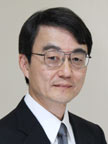
Graduated from the University of Tokyo in Engineering in 1978 and received his master’s degree in Science from Cornell University in 1983. In 1978, he joined Japanese National Railway. In 1987, he joined Mitsubishi Research Institute, Inc. and he specializes in Social Systems and Future Study (Post Industrial Society). Since December 2016 Senior Research Fellow. Since 2015, he has been serving as a mentor of project manager training program, JST.
Akira Morita
Director-General, Research Institute of Science and Technology for Society (RISTEX),
Japan Science and Technology Agency (JST)
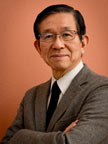
Akira Morita is Director-General of the Research Institute of Science and Technology for Society (RISTEX) at the Japan Science and Technology Agency (JST) and Professor of School of Policy Studies at Tsuda University. His research has focused on public administration as well as public policy and health care policy. He previously held positions at the University of Tokyo, Gakushuin University, National Institute of Population and Social Security Research.
Abstract
PJ Presentation 1:
“Distributed Rainwater Management for a Sustainable Well-being Society”
Yukihiro Shimatani, Professor
(Faculty of Engineering, Kyushu University)
The current centralized water management system is efficient but lacks in coordination across different uses of water. Consequently, a comprehensive approach to natural disaster risks, such as localized downpours and flooding, is difficult. In addition, as water management systems are not visible to the general public, they can hardly attract attention, which makes this issue left unattended in society.
This project proposes an “Amamizu (Rainfall) Society,” which is equipped with a comprehensive water cycle system that encompasses flood control, water utilization, environmental preservation and quality of life for the local people.
As a decentralized subsystem to complement the current water management system, we will take an approach to preserve rainwater locally and make it percolate into the ground, with the participation of multigenerational and diverse stakeholders in the region. The process of storing and using rainwater, including the context of beauty and traditional culture, contributes to raising public awareness of the importance of water management and the restoration of rich local ecosystems.
PJ Presentation 2:
“Ensuring Sustainability at Local Government Level through Promoting Implementation of Multigenerational Participatory Stock Management Methods”
Hidefumi Kurasaka, Professor
(Graduate School of Social Sciences, Chiba University)
Our project believes that sustainability is ensured by keeping human, man-made, natural and social capital stocks that support our society in healthy forms. In this project, the Future Chart issuing program was developed. This gives predictions for each basic municipality whether or not it will be possible to care for those various capital bases in 2040 if the current trend continues. Since it was released in October 2017, it has exceeded 20,000 downloads. The future situation is described in the Future Chart and can be changed by various policies.
In this project, the Future Workshop method has been also developed. In this workshop, based on information grasped in the Future Chart, younger generations such as junior and senior high school students think about policies on local sustainability from the standpoint of the mayor in 2040, and make recommendations to the current mayor.
PJ Presentation 3:
“Restoring a Beautiful and Rich Inner Bay through ‘Fish Local, Eat Local’”
Koji Otsuka, Professor
(Graduate School of Humanities and Sustainable System Sciences, Osaka Prefecture University)
Due to world population growth, sustainability of food and water supply is under threat. Therefore, we need to reassess the role of inshore fishing as a source of protein, which can be obtained with limited usage of water and energy. However, a declining habit of eating local fish has led to a reduced demand for inshore fishing, and decreasing number of fisherpersons.
In this research and development project, focusing on the fish catch in Osaka Bay, which used to be known as the “Sea of Naniwa (fish garden)”, we develop a regional model to create a virtuous cycle of people, products and money. Specifically, we recycle fish scraps for pebble-like fish aggregating devices to attract fish, and to develop cooking recipes using local fish through intergenerational co-creation. In addition, we establish a distribution channel for local fish and develop technology to maintain freshness to be applied there. With these activities, we realize community-based fishing and fish-eating culture.
Case Study on Intergenerational Co-creation Overseas 1:
“Multi-Generational Centers in Germany - Experiences from a Federal Program to Support Municipalities in Responding to Demographic Change”
Nikola Ornig, Head of Department
(InterVal GmbH, Germany)
For more than ten years the Federal Ministry for Family Affairs, Senior Citizens, Women and Youth has supported “Multi-Generational Centers” - central meeting places where social cohesion between generations is actively promoted. Co-funded by municipalities and districts across Germany, the “Multi-Generational Centers” help to develop solutions for challenges of demographic change on a local level.
This presentation will outline the core concepts of the work of “Multi-Generational Centers”. It will take a closer look at the cross-generational approach, the “open meeting place” and different services and activities tailored on the needs of people of different age and cultural background living in the respective municipalities. Further, it will address the importance of voluntary involvement for the success of the Centers. People of all ages and different backgrounds have the possibility to volunteer in “Multi-Generational Centers” under professional guidance, thereby strengthening their own social and professional skills as well as supporting the social infrastructure in their municipalities.
Case Study on Intergenerational Co-creation Overseas 2:
“Promoting Intergenerational Bonding in Asia”
Quyen Ngoc Tran, Regional Programme Adviser
(HelpAge International Asia Pacific Regional Office, Thailand)
When people are raised in different times and are at different stages in their life, their values and perceptions of the world can be quite different. This can lead to reduced interaction, misunderstanding and even conflict with one another. In addition, generation gaps are widening due to fast changing lifestyle, globalization, migration and diverse ideologies. Because of these gaps, it is important to have a special effort to promote greater understanding and relationship between the generations.
HelpAge has been working in the Asia and Pacific region for more than 15 years to promote Intergenerational Bonding (IB). This presentation will share HelpAge’s IB initiatives in seven Asian countries (India, Sri Lanka, Thailand, Vietnam, Bangladesh, Indonesia and Cambodia). It will also look into the specific benefits IB initiatives brings to both young and older people and will share strong evidence of the wide and long-term impact of IB initiatives.
Contact
R&D Area for “Designing a Sustainable Society through Intergenerational Co-creation”,
Research Institute of Science and Technology for Society (RISTEX), Japan Science and Technology Agency (JST)

